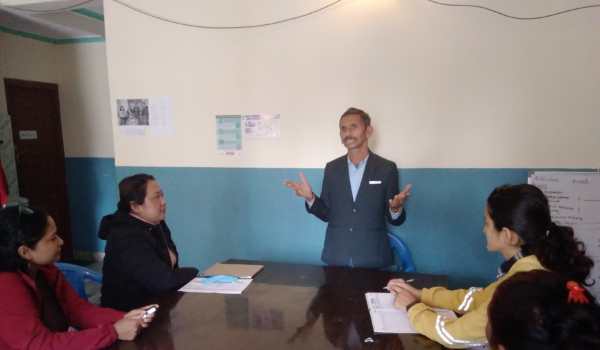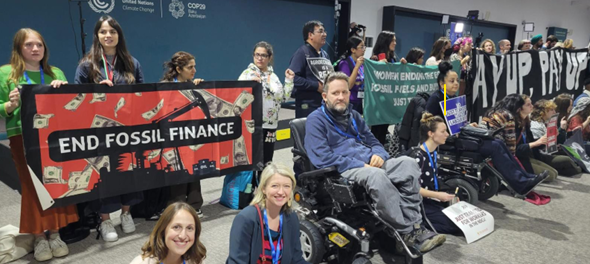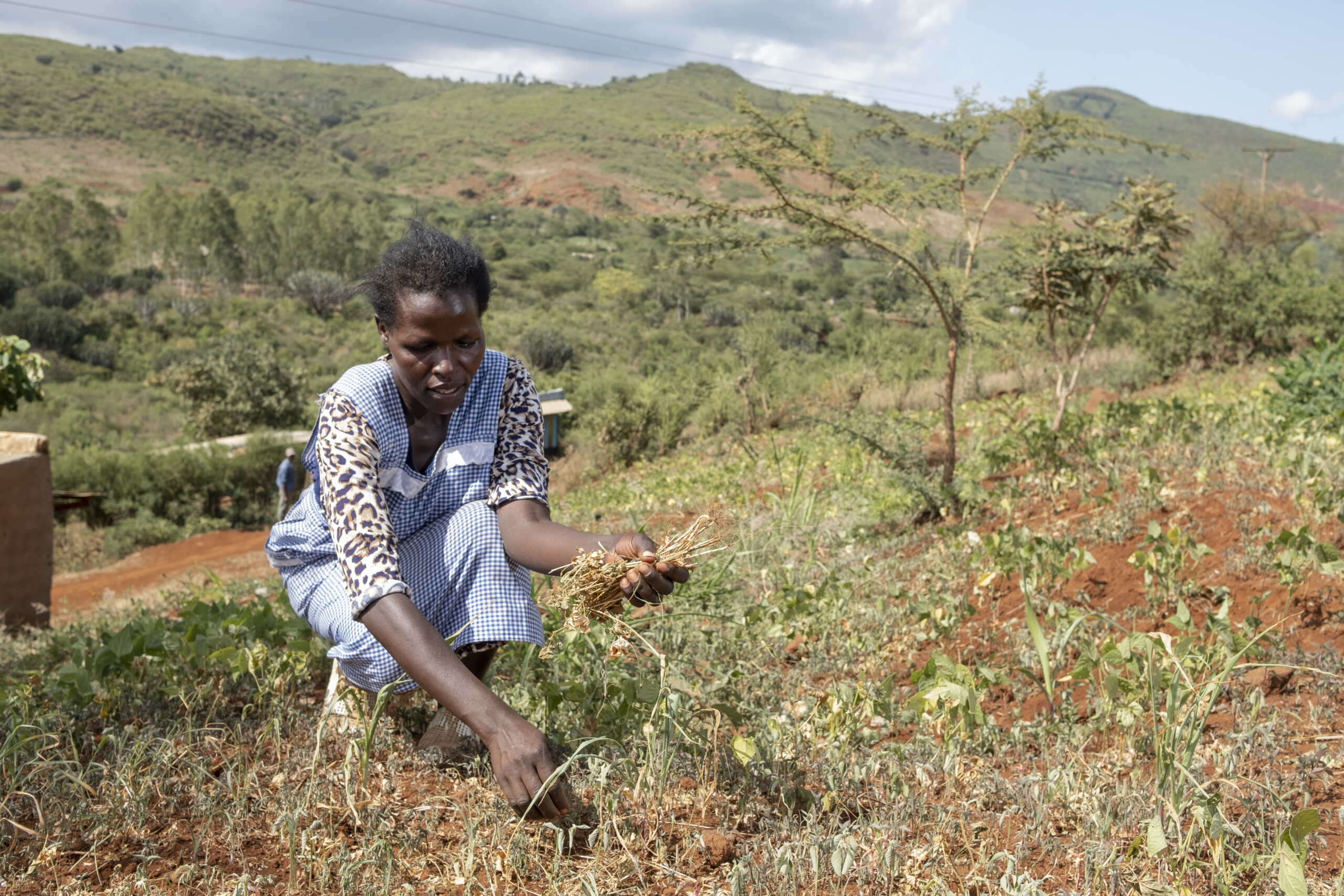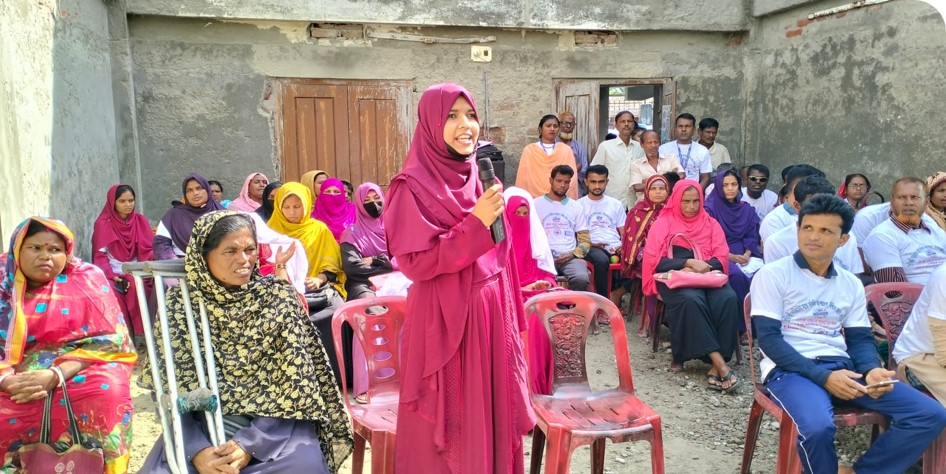Creating hope through action: Our suicide prevention work in Nepal
News | September 9, 2022
CBM Global and our partner KOSHISH work together to prevent suicide in Nepal.
Suicide is a major public health problem. According to the World Health Organization, around 703,000 people take their life around the world every year.1 That is one person every 40 seconds globally, with 77% of cases happening in low- and middle-income countries. In Nepal, death because of suicide has been increasing – from 5,509 in 2018 to 6,968 in 2020.2 During the COVID-19 pandemic, the country’s suicide cases rose to 14%.3 The increasing trend means that it will be challenging for the government to lower suicide-related deaths by 2030.
To contribute to this national commitment, CBM Global Nepal and our partner KOSHISH, a national self-help organisation, are working together to reduce suicide-related deaths in the country. The project aims to minimise suicide risk factors by collaborating with different sectors at the local, provincial, and federal levels of government. Community members, including those with lived experience, and government authorities from different sectors were engaged in developing and implementing the suicide prevention project.
Rita Gautam, Senior Programme Officer of CBM Global Nepal, says:
“Suicide is a major public health issue in Nepal. According to Nepal Police records, 20 people attempt suicide every day. People hide their issues or do not speak about them. The reasons include lack of awareness, lack of support mechanisms, and underlying stigma and discrimination. Many suicide attempts are not even reported. Through this project, we help address the gaps in suicide prevention. By creating hope through action, we can communicate to people experiencing suicidal thoughts that there is hope and that we care and want to support them.”
What are we doing to prevent suicide in Nepal?
Together with our partner, the government, and community members, we are raising awareness of suicide prevention at the local and provincial levels. How are we doing it?
- By advocating and lobbying:
- Sensitising provincial and local government on mental health and suicide prevention
- Supporting government to develop strategy/guideline on suicide prevention and restriction of means of suicide
- Through capacity building:
- Developing and endorsing a government gatekeeper training manual
- Giving gatekeeper training to health professionals, community leaders/groups, community volunteers, youth, security professionals, teachers
- Providing Mental Health and Psychosocial Support and crisis management training to health professionals for suicide survivor support
- By providing access to crisis/emergency support
- Supporting local government and health facilities to start crisis management and psychosocial support to suicide survivors and their families
- Setting up referral mechanisms for specialised care or treatment
- Operating of suicide prevention helpline service in collaboration with a hospital/medical college
- Through community campaigns and awareness raising
- Raising awareness and campaigning at the community level
- Training of media personnel on ethical reporting on suicide
- Supporting the local government to form inclusive multi-sectoral suicide prevention committees
- Campaigning in schools on suicide prevention
- Engaging people with lived experience and community volunteers in campaigns
- Conducting street drama and radio programmes
Aside from these, we are collecting evidence, learning, best practices, and challenges encountered. These will help CBM Global and other stakeholders with future interventions in suicide prevention.
Our progress so far
In one year, the project reached around 2,500 people from different stakeholders, including those in communities. We have sensitised 284 provincial and local government representatives, policymakers, and duty bearers on suicide prevention. More than a hundred suicide survivors, survivors of suicide loss and others received individual counselling support from psychologists and psychosocial counsellors. A total of 79 persons representing various organisations of persons with disabilities, along with suicide survivors/families, have been capacitated and engaged in the awareness campaign and advocacy for suicide prevention. These are only a few of the progress we have made from 2021 to June 2022.
Creating hope in Balkrishna’s life
Balkrishna, 50 years old from Pokhara, attempted suicide after losing his wife to COVID-19. After learning his condition, a local government representative referred him to KOSHISH. A counsellor visited him and provided psychosocial support. Along with this, the counsellor also talked to Balkrishna’s family and neighbours and linked him with the local government for basic needs support. The counsellor helped Balkrishna to learn coping mechanisms, apply different stress management techniques, and find hope for the future.

“Looking back, I realised that I had no place to share my feelings. It’s okay to feel sad in life but I learned that it’s important to share our feelings. Now, I feel fortunate that I am alive. KOSHISH helped me find my happiness…my reason for wanting to live,” Balkrishna said. Today, he participates in community-level suicide prevention programmes along with KOSHISH. “I am happy to help and serve others,” he said.
Mita Rani Roy Chowdhury, CBM Global’s Mental Health Advisor in Asia, says:
“Suicide is a preventable public health concern. We can contribute to its prevention by increasing awareness, instilling hope, and providing care to people at risk of suicide. Suicide survivors often endure stigma in society, and criminal charges in some contexts, which delay their recovery. CBM Global is committed to continuing our efforts on suicide prevention and supporting survivors through our Mental Health work.”
If you are experiencing crisis or distress, please reach out to the following hotlines:
- National Suicide Prevention Lifeline
1-800-273-8255 (1-800-273-TALK)
- Crisis Text Line
https://www.crisistextline.org/
- Nepal:
National suicide prevention helpline-1166
KOSHISH -16606152007/16600122322
Sources:
1. https://www.who.int/campaigns/world-suicide-prevention-day/2022
2. https://www.nepalitimes.com/latest/suicides-a-pandemic-within-a-pandemic/
Main image: Balkrishna, 50 years old from Nepal, doing stress-relieving muscle exercises with his counsellor.
https://cbm-global.org/news/creating-hope-through-action-our-suicide-prevention-work-in-nepal
Related News

One in Five Is Not Enough: The gains on Disability Inclusion have not gone far enough
One in Five Is Not Enough: The gains on...

COP30 Is a Turning Point for Disability-Inclusive Climate Action
As the world gathers in Belém, Brazil, from 10–21 November 2025 for COP30, the message from...

Achieving resilience for all requires funding disability inclusion in DRR
On International Day for Disaster Risk Reduction (DRR) 2025,...
